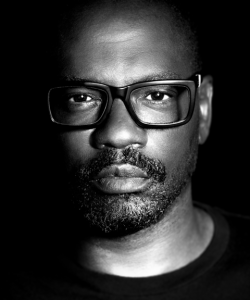Upcoming Contest Deadlines
Writers of all stripes will find opportunities in the last contests of May and the first of June. With deadlines of May 30, May 31, or June 1, these opportunities include a prize for undergraduate fiction writers, several contests awarding book publication, and grants supporting the translation of book-length works of poetry and prose. All offer a cash award of $1,000 or more and three charge no entry fee.
American Short Fiction Halifax Ranch Fiction Prize: A prize of $2,500 and publication in American Short Fiction is given annually for a short story. Deadline: June 1. Entry fee: $20.
Anhinga Press Prize for Poetry: A prize of $2,000, publication by Anhinga Press, and 25 author copies is given annually for a poetry collection. Ellen Bass will judge. Deadline: May 31. Entry fee: $25 ($28 for electronic submissions).
BOA Editions Short Fiction Prize: A prize of $1,000 and publication by BOA Editions is given annually for a short story collection. Peter Conners will judge. Deadline: May 31. Entry fee: $25.
Boulevard Emerging Poets Contest: A prize of $1,000 and publication in Boulevard is given annually for a group of poems by a poet who has not published a poetry collection with a nationally distributed press. The editors will judge. Deadline: June 1. Entry fee: $16.
Bridport Arts Centre Bridport Prizes: Two prizes of £5,000 (approximately $6,871) each and publication in the Bridport Prize anthology are given annually for a poem and a short story. Two second-place prizes of £1,000 (approximately $1,375) each and publication are given in each category. A prize of £1,000 (approximately $1,375) and publication is also given for a work of flash fiction. Raymond Antrobus will judge in poetry and Robert McCrum will judge in fiction and flash fiction. Deadline: May 31. Entry fee: £10 (approximately $14) for poetry, £12 (approximately $17) for fiction, and £9 (approximately $12) for flash fiction.
Center for Fiction New York City Emerging Writer Fellowship: Nine fellowships of $5,000 each and a one-year membership to the Center for Fiction in New York City are given annually to fiction writers living in New York City who have not yet published a book of fiction. Winners also have the opportunity to meet with editors and agents who represent new writers, and have access to the center’s writing space, the Writers Studio, for one year. Students who will be enrolled in a degree-granting program during the fellowship period, or who are currently under contract with a publisher for a work of fiction, are ineligible. Deadline: May 30. Application fee: none.
Elixir Press Fiction Award: A prize of $2,000, publication by Elixir Press, and 25 author copies is given annually for a short story collection or a novel. Ann Harleman will judge. Deadline: May 31. Entry fee: $40.
Milkweed Editions Max Ritvo Poetry Prize: A prize of $10,000 and publication by Milkweed Editions is given annually to a U.S. poet for a debut poetry collection. Henri Cole will judge. Deadline: May 31. Entry fee: $25.
PEN America PEN/Heim Translation Fund Grants: Ten grants of $3,000 each are given annually to support the translation of book-length works of poetry, fiction, and creative nonfiction that have not previously appeared in English or have appeared only in an “outdated or otherwise flawed translation.” An additional $5,000 grant, the PEN Grant for the English Translation of Italian Literature, will be given to support the translation of a book of fiction or nonfiction from Italian into English. Manuscripts with up to two translators are eligible. Deadline: June 1. Entry fee: none.
Salamander Fiction Prize: A prize of $1,000 and publication in Salamander is given annually for a short story. Yiyun Li will judge. Deadline: June 1. Entry fee: $15.
Southern Poetry Review Guy Owen Prize: A prize of $1,000 and publication in Southern Poetry Review is given annually for a single poem. Deadline: May 31. Entry fee: $20.
Stony Brook Southampton Undergraduate Short Fiction Prize: A prize of $1,000 is given annually for a short story by a college student. The winner also receives a full scholarship to attend the Southampton Writers Conference in summer 2022, and their winning work will be considered for publication in Southampton Review. Deadline: June 1. Entry fee: none.
University of Georgia Press Flannery O’Connor Award for Short Fiction: A prize of $1,000 and publication by University of Georgia Press is given annually for a collection of short fiction. Deadline: May 31. Entry fee: $30.
Visit the contest websites for complete guidelines, and check out the Grants & Awards database and Submission Calendar for more contests in poetry, fiction, and creative nonfiction.







